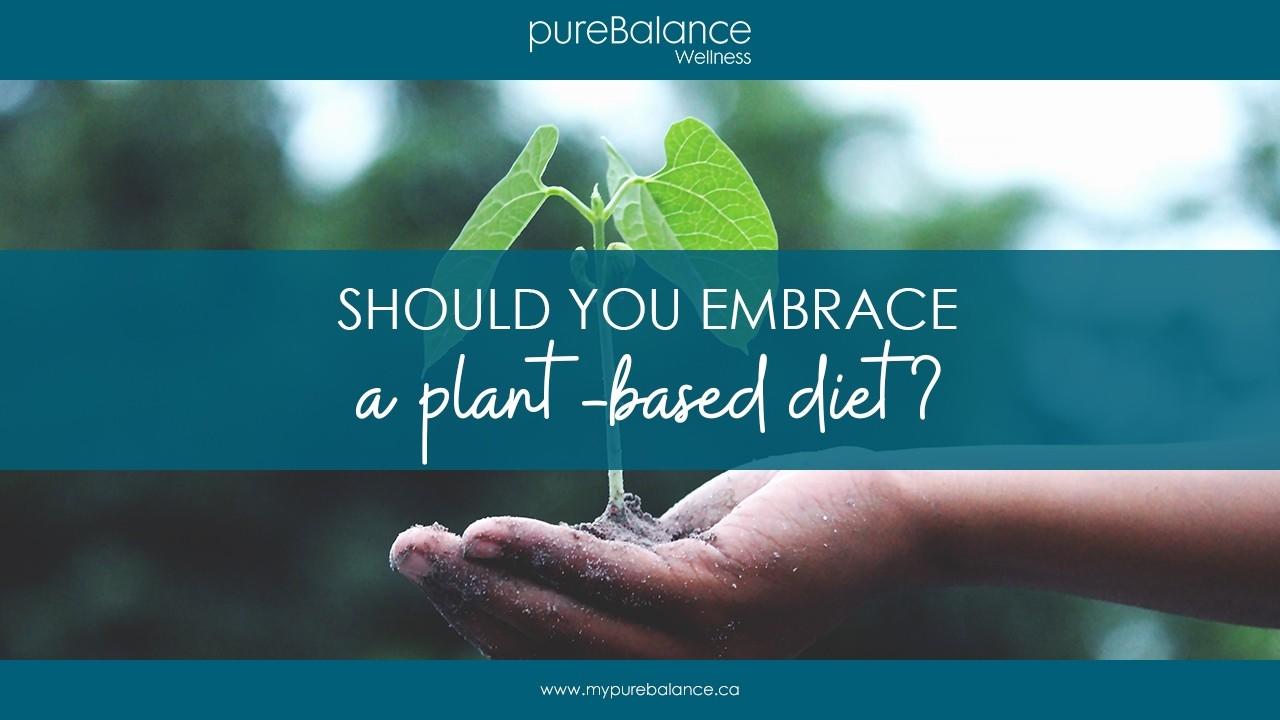Should You Embrace A Plant-Based Diet?
Dec 04, 2018
The vegan diet has been a hot topic of discussion for quite some time, but we find there can still be some confusion over what a vegan diet is and why it can be of benefit to your health. If you’ve been wondering what all the buzz is about then this blog post is for you!
So, what does it mean to go vegan? First and foremost, a vegan diet eliminates all foods that originate from animals. So, this means no meat, poultry, eggs, fish, and dairy – YIKES! Why would anyone want to eliminate these from their diet? And what could they replace these with?! Don’t worry, the team at pureBalance has you covered, so keep on reading :D
From a health and wellness perspective, eating foods of animal origin can be damaging to the body. First off, if the animals were raised conventionally (ie not organic), they have been exposed to antibiotics and hormones that we end up ingesting by eating the meat. Consuming excess hormones and antibiotics in this manner exposes us to many potential health risks by lowering our immunity and disrupting normal hormone production and signaling. If you don’t want to go vegan, that’s totally ok! We appreciate that this lifestyle isn’t for everyone and believe life is all about balance. So, if you choose to eat meat – don’t sweat it – but please make sure to buy organic and/or grass fed whenever possible to reduce exposure to unnecessary chemicals, hormones, and additives.
Eating animal proteins are also very acidic and excess acids create inflammation throughout the body. This type of environment prevents the body’s natural healing mechanisms from functioning optimally and can create an environment where disease can form. In contrast, plant proteins produce less acids in the body and contain other beneficial nutrients that help to buffer the acidic effect on the body.
Perhaps the biggest advantage from a nutrition standpoint regarding a vegan diet is that the amount of fiber and phytonutrients consumed skyrockets. Fiber and phytonutrients are found exclusively in plant foods – so when your diet consists of only plant foods, it makes sense that you naturally end up consuming a lot more fiber and phytonutrients. Fiber is so important to your overall health as it plays a major role in digestion, detoxification, and immunity. Phytonutrient literally means “plant food” and is a broad term that basically refers to all of the antioxidant and anti-inflammatory benefits found within plant-based foods. Consuming more phytonutrients helps your body stay strong and vibrant as they support both the immune system and the detoxification process.
It’s important to note here that “going vegan” and eating a lot of the commercially available vegan foods is not always a healthy choice as these products are highly processed. We encourage eating whole, plant-based foods as close to their natural state as possible like a variety of vegetables and fruits, legumes, whole grains, nuts and seeds. These whole foods are nutrient-dense and are much better alternatives to highly-processed vegan meat alternatives.
If you’re interested in eating less meat and are curious about plant-based options, there are plenty of great ways to change it up. One of my favourites is to use black beans instead of meat in a taco. Health is a journey and food plays a major role in that journey. If eating more plants intrigues you, I encourage you to lean into that feeling and check out some recipes and get creative!
Lauren Neuberger - Holistic Nutritionist
 o
o
Stay connected with news and updates!
Join our mailing list to receive the latest news and updates from our team.
Don't worry, your information will not be shared.
We hate SPAM. We will never sell your information, for any reason.




